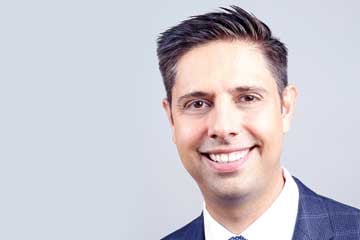
As the Law Society of Upper Canada’s statement of principles is set to face renewed scrutiny at Convocation and in the courts, organizations representing racialized lawyers are questioning why the issue has been reopened in the first place.

As the Law Society of Upper Canada’s statement of principles is set to face renewed scrutiny at Convocation and in the courts, organizations representing racialized lawyers are questioning why the issue has been reopened in the first place.
The statement of principles is being implemented this year as part of an effort to battle barriers faced by racialized licensees in the legal profession. It requires lawyers and paralegals to adopt and abide by a statement of principles that acknowledges their “obligation to promote equality, diversity and inclusion.”
The requirement was one of 13 recommendations approved together by Convocation in Dec. 2016 and that came out of a report that identified barriers faced by racialized licensees.
The report was the product of four years of research and consultation done by an LSUC working group, and for some organizations, it was largely a compromise that did not go far enough. Those organizations now do not want to see one part of the initiative picked apart, and yet Convocation is set to consider an exemption to the requirement at its next meeting after Bencher Joe Groia asked it to do so.
The requirement has faced some backlash from lawyers and legal scholars, who argue it imposes beliefs on licensees and is a violation of freedom of conscience, leading to Groia’s request and a court challenge filed by a Lakehead University law professor.
“What’s the point of having the report if we’re just going to shelve it or stick our heads in the sand?” says Hafeez Amarshi, president of the South Asian Bar Association of Toronto. “We spent four years working on this report.”
The Canadian Association of Black Lawyers recently sent a letter to the law society, also supporting the statement of principles and questioning why the issue would be reopened, particularly considering a discussion already happened on the issue at the Dec. 2016 meeting when the recommendations were approved.
In the letter, the association acknowledged that the statement of principles will not be popular among all lawyers but that it is essential. Groia’s motion will ask benchers to consider an exemption for conscientious objectors of the requirement.
Bencher Anne Vespry, who is seconding Groia’s motion, says the motion will give benchers the opportunity to reconsider the statement of principles without threatening any of the other recommendations.
Benchers had to vote on all 13 recommendations as an all-or-nothing package. Vespry was among the benchers who was critical of the statement of principles, and she voted to consider the requirement separately.
“When you pair really important and useful proposals or recommendations with others that might not stand as much scrutiny, and you say oppose this piece and we will lose everything — that can be very persuasive,” says Vespry, who is a racialized lawyer.
While benchers are set to debate the issue again, Lakehead University law professor Ryan Alford has turned to the courts to try to put an end to the statement of principles. He has asked the Ontario Superior Court for an interim injunction to stop the law society from enforcing the requirement, and he has requested a declaration that it is both unconstitutional and outside the law society’s statutory authority.
“When you ask people to swear that they have any particular value — even if that view is one that we would all agree is unproblematic — you’re coercing people to reveal what is innermost,” says Alford. He has asked the court to declare that the requirement is contrary to the rule of law and unsupported by the regulator’s Rules of Professional Conduct. The professor’s application argues the requirement is disproportionate, inoperable and unconstitutional.
“A lot of people in the legal profession find the fact that the law society would be doing that particularly problematic, given that the law society is representative of a profession that is meant to be guardians of the constitution [and] defenders of the rule of law,” he says. LT